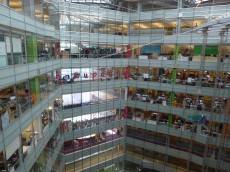February 5, 2014
Corruption in procurement perceived as widespread across EU
 According to the EU’s newly published Anti Corruption Report, around 15 percent UK firms believe that corruption has prevented them from winning a public contract at at least one point during the past three years. Although this rate compares favourably with an EU average of 32 percent, the report concludes that the total cost to the European economy of corruption is some €120 billion. The most commonly cited practices cited by the firms responding to the survey included specifications and procurement processes tailored for certain firms, conflicts of interest in bid evaluation and collusion between suppliers. Although under a fifth of UK businesses claim to have been directly affected, nearly half (46 percent) feel corruption is widespread compared to an EU average of 75 percent.
According to the EU’s newly published Anti Corruption Report, around 15 percent UK firms believe that corruption has prevented them from winning a public contract at at least one point during the past three years. Although this rate compares favourably with an EU average of 32 percent, the report concludes that the total cost to the European economy of corruption is some €120 billion. The most commonly cited practices cited by the firms responding to the survey included specifications and procurement processes tailored for certain firms, conflicts of interest in bid evaluation and collusion between suppliers. Although under a fifth of UK businesses claim to have been directly affected, nearly half (46 percent) feel corruption is widespread compared to an EU average of 75 percent.






















February 3, 2014
3D printed pizzas – the future of fast food for (very) remote workers
by Mark Eltringham • Comment, Flexible working
(more…)